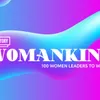Beauty redefined: This Nykaa-like platform aims to disrupt Bangladesh’s beauty ecommerce space
Bangladesh-based beauty ecommerce startup Shajgoj sells 10,000 products from over 400 renowned brands online and two flagship stores in Dhaka.
Falguni Nayar’s profit-making beauty and personal care startup has won many hearts in India. Available at our fingertips, India boasts of several brands, including , , , Purple, , etc., who sell many sought after products online and in physical retail stores.
However, the situation in our neighbouring country Bangladesh is quite different. The beauty and personal care, as well as ecommerce sectors, are still in their early days with a handful of players.
For example, global beauty brand Revlon — which entered the Indian market in 1995 — was only launched in Bangladesh in 2022 after an exclusive partnership with a local beauty startup, Shajgoj.

The force behind Shajgoj
Dhaka, Bangladesh-based Shajgoj — which translates to ‘to adorn or dress up’ — is a beauty ecommerce startup launched in 2013 by Nazmul Sheikh, Sinthia Sharmin Islam, and Milky Mahmud.
But it was only in 2018 that it started selling beauty and personal care products in the country — catering to almost 400,000 customers.
Through its online platform and two flagship stores in Dhaka, Shajgoj sells 10,000 beauty and personal care products from over 400 renowned brands.
The Aha moment
A former telecom engineer working in Nigeria, Nazmul got the idea of starting Shajgoj during a visit to Dubai.
“My wife Sinthia and I were visiting the Dubai Mall when she found a cosmetics store and spent almost two hours hoarding cosmetics. When I asked her what was so special about them, she told me that these products were not available in Bangladesh. And we realised the highly undersized beauty sector of the country,” recalls Nazmul.
According to Allied Market Research, in 2020, Bangladesh’s skincare products market size was valued at $1.23 billion, expected to garner $2.12 billion by 2027, registering a CAGR of 8.1 percent between 2021 and 2027.
At the time, Nazmul says, as a bootstrapped company, exploring a niche market through content was tough.
Before the founders could launch the beauty ecommerce platform, they had to create the demand for its products for almost five years by regularly publishing blogs on topics, including beauty, hygiene, and skincare, for better public awareness.
“The initial team consisted of good content writers who researched topics such as beauty and skincare routines, products that suit different skin types, personal hygiene, and others,” he adds.
Today, Shajgoj continues to create both video and written content to gain more users. It competes with ecommerce websites, including Evaly, Priyoshop, and Daraz Bangladesh.
Lack of authentic products
According to Nazmul, ecommerce in Bangladesh is slowly but organically growing with the presence of Amazon, Flipkart, and Alibaba. However, a niche market like beauty and personal care needs more dedicated players.
Moreover, many of the beauty products sold in the country are of substandard quality. A 2018 study found that over 50 percent of skin whitening creams purchased online in Bangladesh contained higher levels of mercury than permissible.
“In India, you have Nykka, Flipkart, Amazon, Meesho, Myntra, and so many other ecommerce platforms that sell authentic beauty products. But, in Bangladesh, the apprehension toward ecommerce platforms is quite real. In this scenario, selling authentic products plays a vital role in creating the trust for ecommerce among customers, both old and new,” Nazmul says.
Future plans
Bangladesh’s beauty products market has witnessed massive growth and changes, especially amidst the COVID-19 pandemic.
“Earlier, Shajgoj saw a 60 percent demand for makeup products. The pandemic created a consumer behaviour shift, and today, almost 40 percent of the demand is for skin care and hygiene products,” Nazmul explains.
With 165.8 million smartphone users in Bangladesh and almost 28.8 percent of the country’s population having access to the internet, the demand for beauty products is predicted to change further.
Shajgoj plans to explore these changes to grow by 400 percent. Nazmul says the target is quite scalable since the company projected a 5X and a 4X annual growth rate in 2020 and 2021, respectively.
“We are planning to acquire more customers, set up more outlets, and also launch our private label,” he adds.
Meanwhile, the startup’s 300-plus strong team sees nearly 180,000 monthly orders on its ecommerce website.
In March 2022, Shajgoj raised $2.15 million in its seed fund round from Surge — Sequoia Capital India’s rapid scale-up programme — and SBK Tech Venture.
At the time, Sonia Bashir Kabir, Managing Director of SBK Tech Ventures, said, “Shajgoj’s mission to empower women from all walks of life aligns very well with SBK Tech Ventures’ funding strategy and support for gender equality. We are committed to investing in startups, which solve large-scale problems by leveraging technology, and we are confident in Shajgoj’s stellar vision and talented team.”
Platforms like Shajgoj are enabling women from all walks of life to feel beautiful and confident in their own skin.
Edited by Suman Singh










